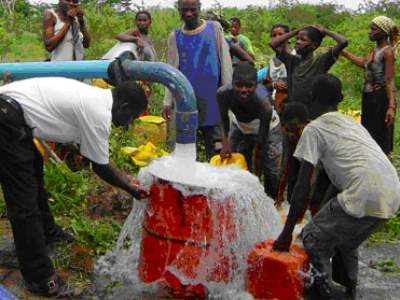
NGOs Take Responsibility for Failure in Providing Access to Water |
|
Tuesday, 9 May 2017 Nobody wants to accept failure, but sometimes you can learn more from failure than from success. In the NGO world, accepting failure is much harder because of the intensity and the emotional/personal involvement brought to each project. However, an NGO working with Welthungerhilfe and Viva con Agua addresses some of their mistakes in trying to provide access to clean drinking water in India. The author of this article, Ajay Paul, has made a frank confession. For him, one of the main issues for this failure is that NGOs “ignore policies” and “do not work with local government officials.” Ajay says that one of his biggest mistakes was running his project “in parallel” to government projects, and a failure to “link up to or support local government plans.” In addition, “when the project is finished, we hand over the management of the pump to the water-user committee and walk away. But we haven’t worked with the local government, so it has no incentive to support the local community when the pump breaks down. The NGO that installed it is seen as the one responsible.” The article, along with a TED talk by David Damberger called, “What happens when an NGO admits failure” -- based on a similar experience with Engineers Without Borders -- focuses on the repercussions when NGOs are not totally involved with the local community and the government. But perhaps it is the government that needs to work alongside NGOs? NGOs should not blame themselves for the follow-up with government officials. After all, one of the main goals of these officials is to develop their country and invest in infrastructure. The government should set goals to meet NGOs “half way” to see better results from all sides. In the article, the author recognizes success by saying that “ 1.6 billion people gained access for the first time between 2000 and 2015.” Unfortunately, this doesn't seem to completely satisfy him. At the same time, it is important for NGOs to come forward with their self-described “failings,” because this is part of process to create better services for civil societies. To read more about this issue: https://www.theguardian.com/global-development-professionals-network/2017/apr/07/clean-water-everyone-sdg-failure To watch the TED talk by David Damberger: https://www.ted.com/talks/david_damberger_what_happens_when_an_ngo_admits_failure Photo courtesy US Department of State |

 By Yomaira Lopez
By Yomaira Lopez